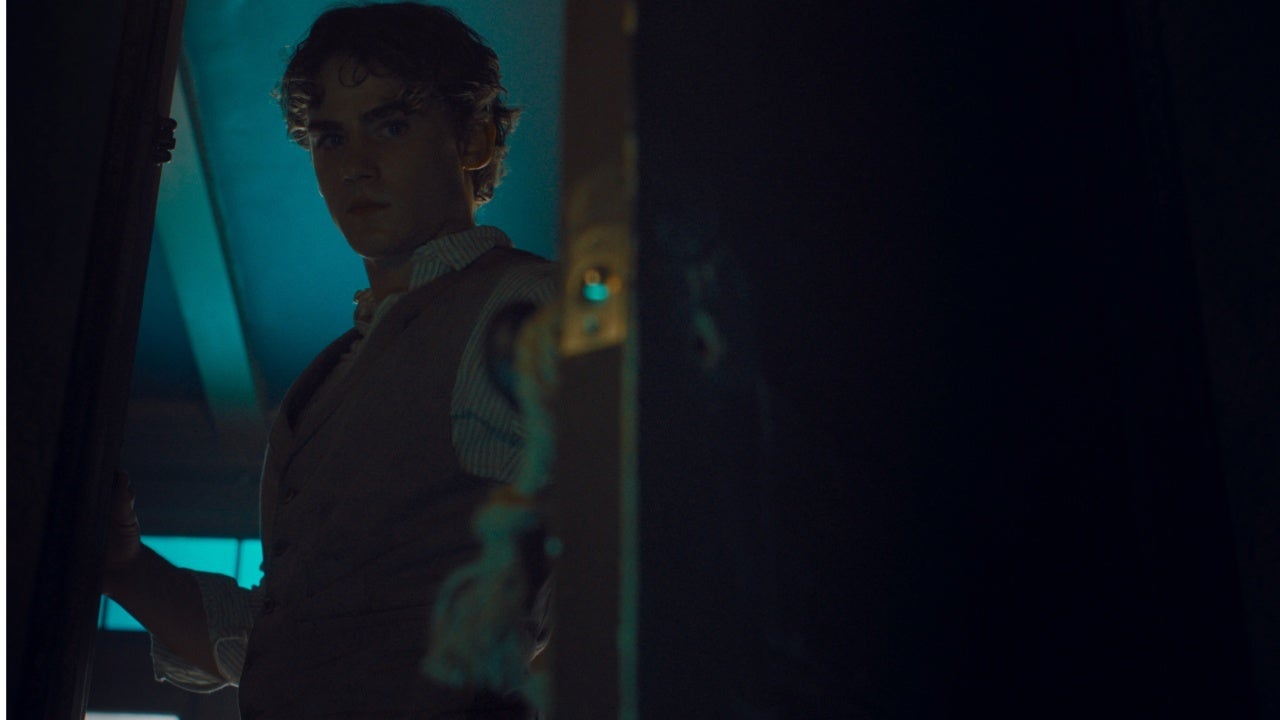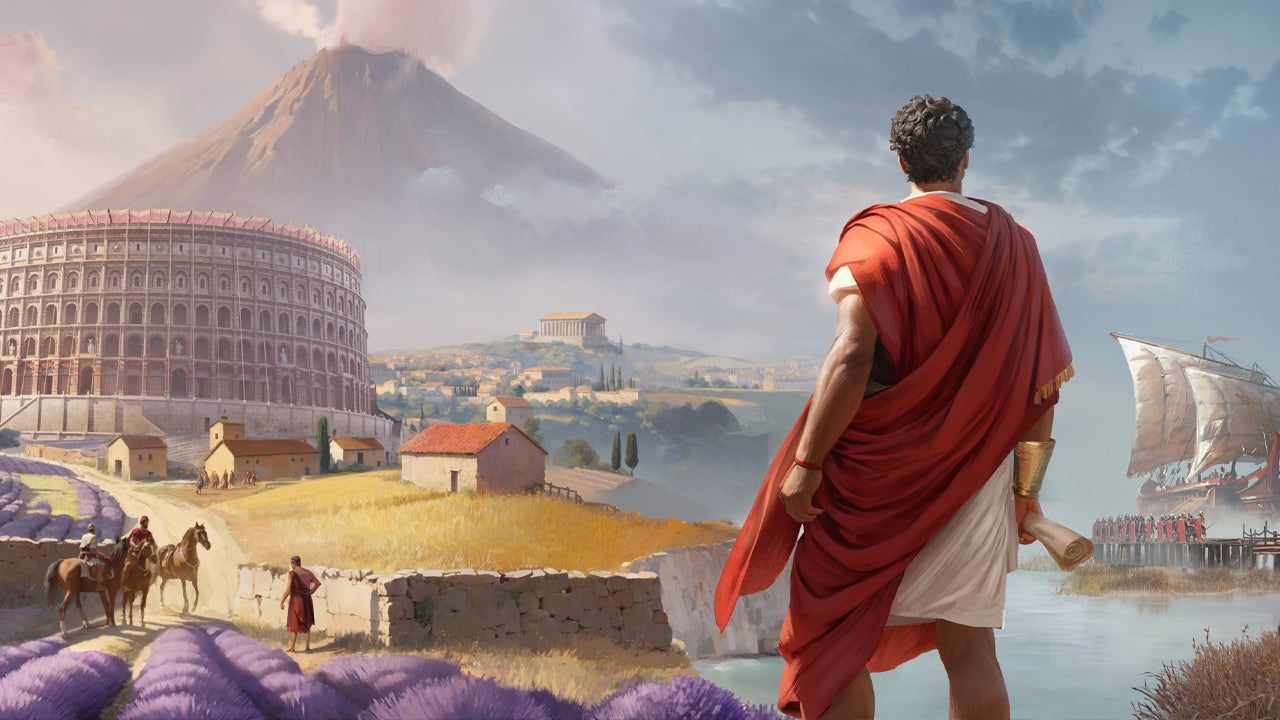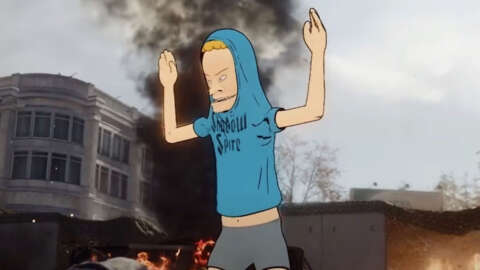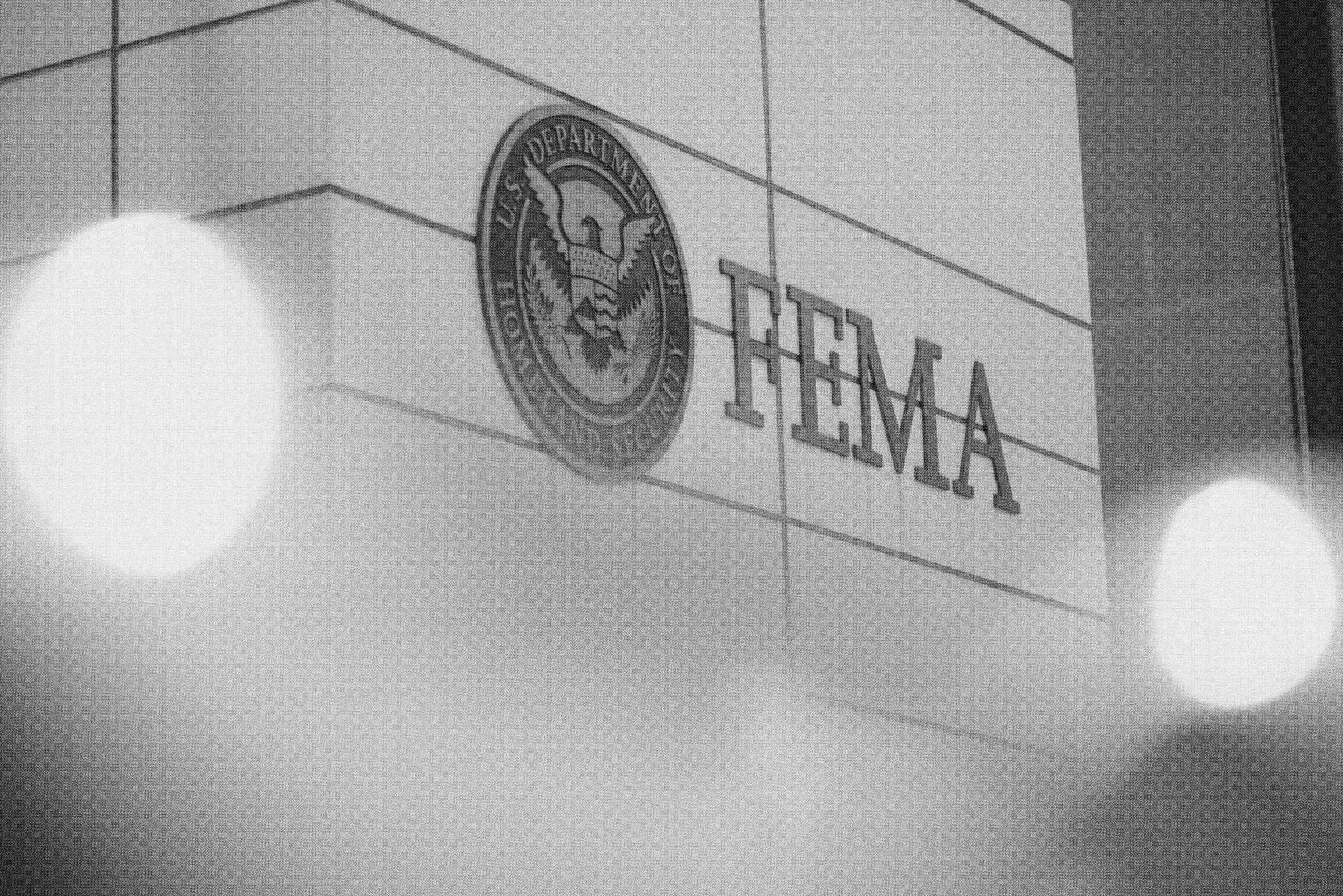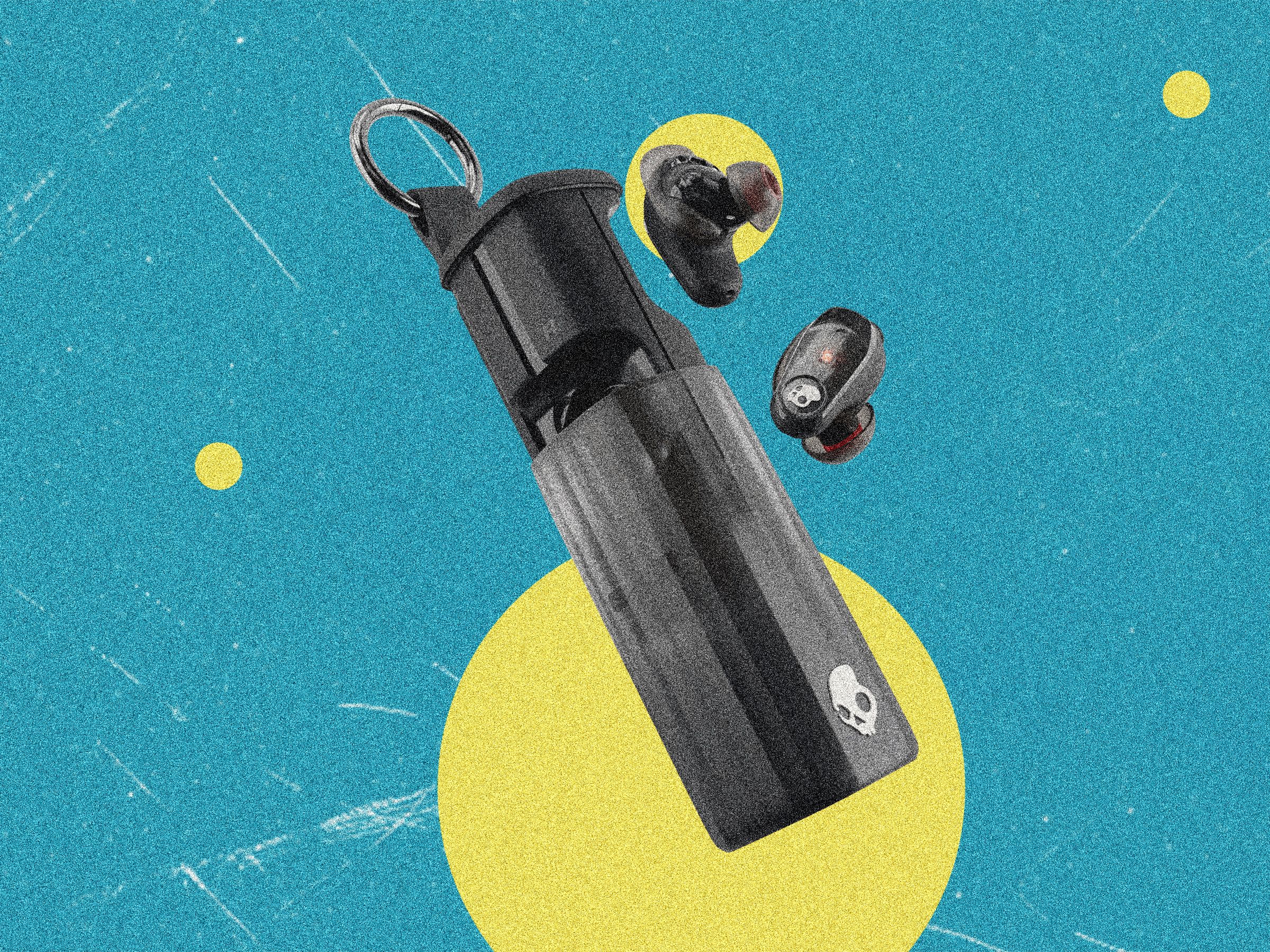
It’s frustrating to see a movie with a solid script and a good cast get held back by its execution. But such is the case with Abraham’s Boys: A Dracula Story. Working from a short story by “The Black Phone” author Joe Hill, writer-director Natasha Kermani crafts a semi-sequel to Dracula that takes Abraham Van Helsing (Titus Welliver) to the American frontier, where the legendary vampire hunter is raising two sons with his wife (and Drac’s one-time target), Mina (Jocelin Donahue). On the plus side, Kermani comes up with something that’s more introspective and off-kilter than a straightforward “Van Helsing dusts off his wooden stakes” tale. On the minus: That’s not enough to keep some artificial, unatmospheric filmmaking from dragging Abraham’s Boys into the graveyard of forgettable vampire movies.
The plot kicks off on a suitably uneasy note, with some strange behavior from Mina causing Van Helsing to wonder if vampires are once more being drawn to her. From the get go, it’s unclear whether this is actually what’s happening, if it’s all in Mina’s head, or if it’s the work of another threat entirely. But the level of craft on display isn’t enough to support this intriguing setup. Abraham’s Boys’ vision of central California circa 1915 feels distractingly stagey – the sets and costumes are a little too clean and pristine-looking, some of the supporting characters are a little too modern in their demeanor. More damagingly, several would-be spooky and startling scenes fail to elicit any real dread, with attempts at jump scares completely falling flat.
Because of what’s happening with their mom, the boys of the title – teenage Max (Brady Hepner) and his younger brother, Rudy (Judah Mackey) – are informed of their dad’s special skill set. A big, upsetting revelation shifts Abraham’s Boys away from its clunky early scenes, and the story grows more engaging from there. When they’re told that vampires are real, Max and Rudy are understandably confused and upset, and there’s inherent tension as they decide what to do next.
Hepner and Mackey work well off each other and make for a sympathetic duo; really, all four members of the family are well cast. Welliver is as charismatic and compelling as ever, even if his vaguely European accent feels a bit spotty at times. He gets to play some darker, more complex shades as Van Helsing makes it clear that he wants his sons to follow his orders without hesitation. Donahue brings a lot of gentle, haunted touches to Mina, and it’s great to see her in such a prominent role some 16 years after her breakout performance in Ti West’s The House of the Devil. (That movie helped kick off contemporary horror’s ’80s fixation, but it should’ve been a bigger launchpad for Donahue, too.) Van Helsing and Mina striking up a May-December romance in the wake of Dracula’s defeat feels inherently creepy, and while this is never articulated or directly spoken about, it does feel like something Kermani is aware of. It hangs over their relationship like the long shadow of an immortal Transylvanian count.
It’s too bad that Kermani the screenwriter is let down by Kermani the director.There’s a lack of overall mood here, while the flat, mundane visuals fail to accentuate the tension and often rob nearly effective scenes of their proper impact. And by eschewing widescreen framing, Abraham’s Boys gains an old-timey appearance – just maybe not the intended one: It winds up looking more like a TV show from the late 1990s than a movie from the early 1900s.
There’s some good to be found in Abraham’s Boys. It's a clever, thoughtful take on Dracula’s greatest nemesis, and it’s always impressive to see a genuinely new angle on such frequently adapted source material. In some ways, this is a deconstruction of Dracula, and given how many variations on that story we’ve seen, it’s always impressive if you can do something new with it. It’s just too bad the movie doesn’t ever really click in and make the most of its core concepts.
